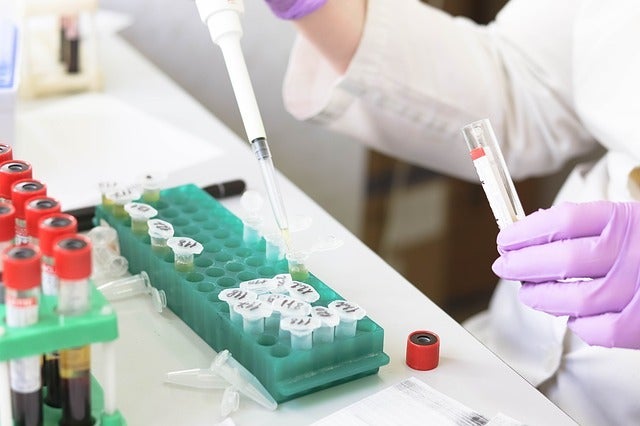
Qiagen has received the US Food and Drug administration (FDA) approval for its therascreen KRAS RGQ PCR Kit as a companion diagnostic (CDx) with Amgen’s Lumakras (sotorasib).
Lumakras was recently approved to treat the previously treated, locally advanced, or metastatic non-small cell lung cancer (NSCLC), in patients with a KRAS G12C mutation.
The therascreen KRAS kit is indicated to identify KRAS G12C mutation in NSCLC tumour tissue samples, determining their eligibility for the treatment with Lumakras.
Qiagen senior vice president and molecular diagnostics business area head Jean-Pascal Viola said: “We are pleased to announce this significant expansion in the scope of FDA-approved CDx claims for the therascreen KRAS Kit.
“This new approval further expands our market-leading therascreen portfolio of companion diagnostic tests, and illustrates our determination to support the delivery of the latest innovations in precision healthcare to patients with NSCLC.”
Along with Qiagen’s CDx, the US regulator also approved Guardant Health’s Guardant360 as liquid biopsy CDx for tumour mutation or complete genomic profiling.
Guardant’s new-generation sequencing test is approved to identify KRAS G12C mutation in blood samples, determining their eligibility for treatment with Lumakras.
KRAS is a frequently occurring mutation in NSCLC, and the KRAS G12C mutation is estimated to be present in up to 13% of cases of the disease.
Guardant Health CEO Helmy Eltoukhy said: “By offering an FDA-approved companion diagnostic that can quickly deliver comprehensive results from a simple blood test, clinicians can have greater confidence using the test, and patients benefit from less invasive testing and shorter wait times to see whether they are eligible for a targeted therapy such as Lumakras.”
Last year, Amgen has teamed up with Guardant and Qiagen to develop both the tissue- and blood-based companion diagnostics to identify patients with the KRAS G12C mutation.
The FDA said that if Guardant’s CDx fails to detect the mutation in patients’ blood sample, then patients’ tumour tissue has to be screened for the mutation using Qiagen’s test.
The US regulatory agency’s decision was based on data from the Phase 2 CodeBreak-100 clinical trial in 124 patients with metastatic, KRAS G12C-mutated NSCLC, whose disease had progressed after receiving platinum-based chemotherapy.




